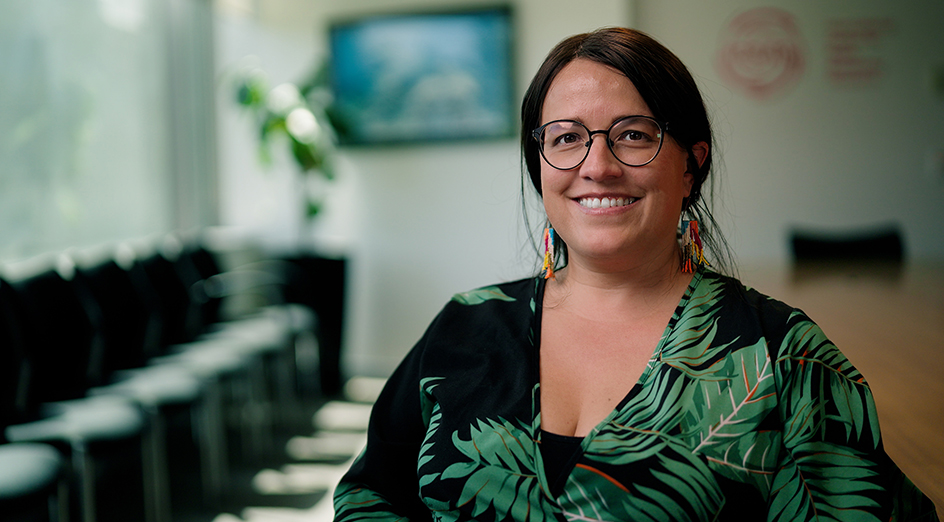An astrophysicist from The University of Western Australia with a fascination for how galaxies form and evolve has been recognised with a prestigious national award from the Australian Academy of Science.
Associate Professor Claudia Lagos from the UWA node of the International Centre for Radio Astronomy Research (ICRAR) was recognised with the Pawsey Medal for outstanding early career research in physics, sharing it with Dr Daria Smirnova from Australian National University.
The Chilean-born researcher said she felt extremely privileged but also proud to be recognised for her work.
"Sometimes you're at your desk working the whole day, you never know if someone notices you so it's beautiful to see that acknowledgement of not only our scientific interests, but also of the tools and resources we have created that can be used by the community as a whole," Associate Professor Lagos said.
Associate Professor Lagos specialises in understanding galaxy formation and evolution through computer simulations, comparing theoretical models with real-world observations.

Image: Computing the cosmos... Associate Professor Claudia Lagos.
"What I do on a day-to-day basis is to try to understand how galaxies form and evolve, basically using computer simulations," she said.
"The way we do that, in layman's terms, is by saying these are the laws of physics as we know them, so how can these laws give rise to the types of galaxies that we observe, like our own Milky Way?"
Her work has made significant contributions to understanding super-massive black holes in galaxy centres and star formation throughout the universe.
One of her key achievements has been developing SHARK, an open-source semi-analytic model of galaxy formation that is free for the entire research community to use.
"I am very passionate about producing open source code that is free to use for the whole community where all researchers can benefit and everyone can see what's happening," she said.
The Pawsey Medal, awarded annually by the Australian Academy of Science since 1967, recognises outstanding research in physics by Australian scientists early in their careers (up to 10 years post-PhD) and commemorates the work of the late Joseph L Pawsey, a pioneer in radio astronomy.
Before joining UWA, Associate Professor Lagos was a Fellow at the German Headquarters of the European Southern Observatory and completed her PhD at the Institute for Computational Cosmology at Durham University.
In addition to the Pawsey Medal, she has received numerous accolades, including the MERAC prize for the best European PhD Thesis in Theoretical Astrophysics in 2014.
The same year, she was recognised in Chile as one of the '100 Women Leaders' and one of the '100 Young Leaders' of the country for her contributions to astrophysics.
Associate Professor Lagos joined 21 other scientists from across the country in being recognised today in the annual Honorific Awards, which celebrate the achievements of leading minds and emerging scientific stars working to solve humanity's greatest challenges.
"Right now in the world, we see a lot of conflict," she said. "I feel that when we consider the really big global challenges we tackle in science, and the human endeavour involved, we are able to see above all those differences because we all have the same curiosity and the same questions."






